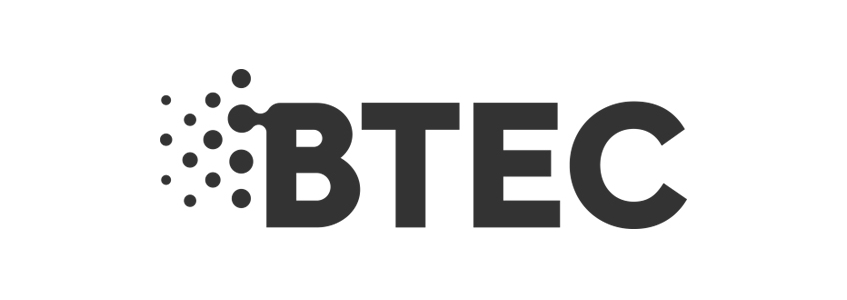What are BTECs? – Courses, Grading, Pros and Cons
BTEC courses stand out in the UK’s landscape of educational qualifications, offering a unique blend of practical learning and critical insight into various industries. Unlike the more theory-centric A-levels, BTECs emphasise real-world applications of knowledge, making them a compelling choice for those keen on a hands-on learning experience. Emerging from a government initiative in the 1980s to bridge the educational realm with the bustling world of industries, BTECs have blossomed into reputable and appealing pathways for both students and employers.
Understanding BTEC Qualifications
BTEC qualifications originate from the Business and Technology Education Council, tailored for those keen on acquiring practical skills within specific employment sectors. They span a range from Entry Level to Level 8, with each level delving deeper into the subject’s complexity. BTECs cover a wide array of sectors including business, engineering, and health and social care, to name a few.
A distinctive feature of BTECs is their hands-on learning approach which stands in contrast to the often theoretical focus of A-Levels. This makes BTECs a pragmatic choice for many learners. The assessment process in BTECs is continuous, carried out through assignments and practical tasks, unlike the traditional examination system.
Furthermore, BTECs are recognised by employers and higher education institutions alike, serving as a stepping stone towards further education or direct employment. The qualifications offer a degree of flexibility with full-time, part-time, and online study modes available. Completing a BTEC can lead to further education, apprenticeships, or direct entry into employment, offering a diversified range of career pathways.

Advantages of Pursuing a BTEC
Practical Learning
Unlike traditional academic qualifications, BTECs focus on practical skills. This approach not only makes learning engaging but also provides a real-world context to what students are learning.
Employability
The practical skills acquired during a BTEC course are often highly valued by employers. These qualifications can lead to increased employability, especially within vocational sectors.
Flexible Learning Pathways
BTECs offer flexibility as they are available at different levels, from Entry Level to Level 5, allowing learners to enter at a level that suits them and progress at their own pace.
Progression to Higher Education
BTECs are recognised by many universities and colleges, and the qualifications can serve as a stepping stone to further study.
Continuous Assessment
Unlike the stress of final exams associated with other qualifications, BTECs are assessed continuously through coursework, which can be a more fair and consistent evaluation of a student’s ability.
Industry Connections
BTEC courses often have strong links with industries and employers, providing students with valuable networking opportunities and often a clear pathway into employment.
Broad Range of Subjects
BTECs cover a wide array of sectors and industries, offering students the chance to explore different fields and find what they are passionate about.
Personal Development
The collaborative projects and practical assignments often found in BTEC courses encourage the development of soft skills such as teamwork, communication, and problem-solving.
Challenges of BTECs
Challenge 1: Perceived Inferiority
Often, BTECs may be perceived as inferior to A-Levels or other traditional qualifications. This perception can sometimes affect the opportunities available to BTEC holders.
Solution:
Raising awareness about the value and relevance of BTEC qualifications among educators, employers, and the general public can help overcome this challenge. Highlighting success stories of BTEC graduates and the skills they bring to the workplace can also contribute to changing these perceptions.
Challenge 2: Limited Subject Offerings
BTECs offer a range of subjects, but the spectrum may not be as wide as that of A-Levels. This limitation can sometimes hinder students who have specific or unconventional academic interests.
Solution:
Exploring additional qualifications or combining BTEC with other forms of study may provide a more well-rounded education. Additionally, institutions can consider expanding their BTEC offerings to accommodate a broader range of interests.
Challenge 3: Recognition Abroad
While BTECs are well-recognised within the UK, there may be varying levels of recognition internationally which could potentially limit global mobility for BTEC holders.
Solution:
Engaging with international educational bodies and employers to promote the recognition of BTECs can help mitigate this challenge. Also, BTEC holders planning to study or work abroad can look into the equivalencies and recognition of BTEC qualifications in their destination country.
Challenge 4: Transition to Higher Education
The practical nature of BTECs can sometimes make the transition to the more theory-focused environment of higher education challenging for students.
Solution:
Preparation courses or bridging programmes can help BTEC holders adjust to different learning and assessment styles. Additionally, universities and colleges can offer support services to assist in this transition.
Challenge 5: Assessment Anxieties
Even though BTEC’s continuous assessment model is a boon for many, some learners might find the ongoing assessments stressful.
Solution:
Institutions offering BTECs could provide training in stress management and study skills. Additionally, creating a supportive learning environment and offering feedback throughout the course can help alleviate assessment anxieties.
How BTEC is Assessed
Continuous Assessment
BTEC qualifications are assessed through a combination of coursework, practical exercises, and sometimes examinations. Unlike traditional academic qualifications, which may rely heavily on final exams, BTECs often use continuous assessment to gauge a student’s understanding and skills.
Coursework
Coursework is a significant aspect of BTEC assessment. Students are required to complete assignments, projects, and practical tasks to showcase their knowledge and skills in a real-world context.
Practical Skills Assessment
Practical skills are a core part of BTEC qualifications, and assessments often include demonstrations, presentations, or creation of physical products. This hands-on approach ensures that students are ready for the work environment in their chosen field.
External Assessment
Some units within BTEC qualifications may require external assessments. These can include exams, controlled assessments, or externally set and marked assignments. The external assessments ensure that students meet the national standards required in specific vocational sectors.
Grading
BTEC qualifications are graded using a Pass, Merit, Distinction, and Distinction* system. This grading system allows for a clear differentiation in achievement levels, ensuring that students are rewarded for their effort and expertise.
Feedback
Continuous assessment also means continuous feedback, allowing students to understand their strengths and areas for improvement. This ongoing feedback is invaluable for personal and academic development, helping students to enhance their skills and knowledge throughout the course.
Popular BTEC Courses
BTEC Health and Social Care
A popular choice for those interested in careers within healthcare or social work sectors. This course covers a wide range of topics including anatomy, physiology, and the societal and personal aspects of care.
BTEC Business
A versatile course that provides a solid foundation in various business-related subjects such as marketing, finance, and business ethics. Ideal for those aspiring to managerial or entrepreneurial roles.
BTEC Engineering
For individuals keen on pursuing a career in engineering, this course covers the basics and more advanced topics within mechanical, electrical, and civil engineering.
BTEC Information Technology
In a digitally dominated world, a BTEC in Information Technology offers a solid grounding in key IT areas including network management, software development, and digital graphics.
BTEC Sport
Sports enthusiasts may find the BTEC Sport course an engaging pathway. This course delves into the science, management, and marketing aspects of the sports industry.
BTEC Performing Arts
A haven for the creatively inclined, the BTEC Performing Arts course nurtures talent in acting, dancing, and singing, preparing students for a vibrant career in the performing arts sector.
BTEC Science
Offering a balanced focus on various scientific disciplines including biology, chemistry, and physics, the BTEC Science course is suited for those with a keen interest in the sciences.
BTEC Travel and Tourism
For those fascinated by the prospect of working within the travel industry, this course provides an in-depth understanding of the operational, marketing, and management aspects of the travel and tourism sector.
Each of these courses provides a unique blend of theoretical knowledge and practical skills, making BTEC a popular choice among students aiming for a vocational or professional career.
BTEC and University Admissions
Recognition by Universities
BTEC qualifications are widely recognised by universities across the UK and abroad. They provide a robust foundation for further study, demonstrating a student’s capability and understanding in a specific sector. Many universities value the vocational nature of BTEC courses as they equip students with practical skills and knowledge relevant to their chosen field of study.
UCAS Points
BTEC qualifications carry UCAS tariff points, similar to A-levels, which are crucial for university admissions. The number of UCAS points a BTEC qualification is worth depends on the grade achieved and the level of the course. For instance, a BTEC Level 3 Extended Diploma with DDD* grades is equivalent to three A-levels at A* grade, making it a substantial qualification for university entry.
Entry Requirements
Each university and course may have different entry requirements. However, many universities accept BTEC qualifications either on their own or alongside other qualifications such as A-levels. It’s advisable to check the entry requirements of the specific universities and courses you’re interested in to understand how your BTEC qualification will be assessed.
Transition to University
The transition from a BTEC course to a university degree can be smooth, particularly if the degree subject is related to the BTEC course studied. The practical skills and industry knowledge gained during the BTEC course can be immensely beneficial for university-level study, providing a practical perspective to theoretical concepts.
Support and Resources
Many universities offer support and resources to help BTEC students transition to university life and academic study. This may include bridging courses, study skills workshops, and additional tutoring.
Conclusion
BTEC qualifications can be a viable pathway to university, offering a practical, vocational approach to learning that is well-regarded by many higher education institutions. The UCAS points associated with BTEC qualifications, along with the practical skills and knowledge they provide, make them a valuable asset when applying for university.
Conclusion
Having delved into the various facets of BTEC qualifications, it’s evident that they offer a flexible and pragmatic approach towards education. They cater to different learning styles and career aspirations, making them a viable option for many. The practical skills and knowledge gained through BTECs can significantly enhance employability and ease the transition to further education or the workplace. Their recognition by universities and employers alike underscores their value, making them a worthwhile consideration for anyone planning their educational journey. Learn more about A-level alternatives.








